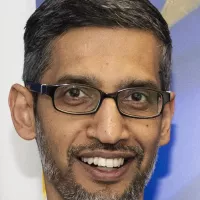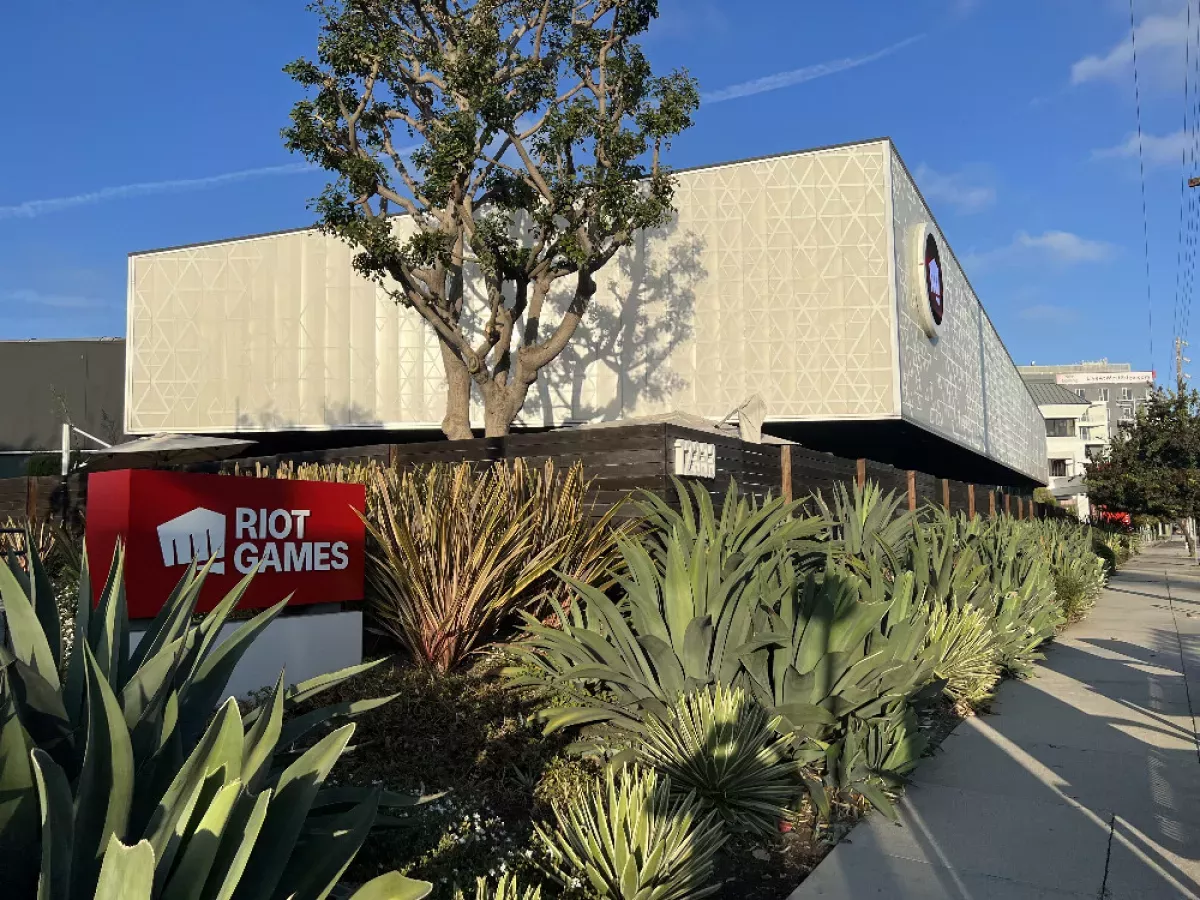Riot Games, founded in 2006 by Brandon Beck and Marc Merrill, is an American video game developer, publisher, and esports organizer known for League of Legends and Valorant. Acquired by Tencent in 2011, Riot also operated Riot Forge, which published League of Legends spin-offs developed by other studios, until its closure in January 2024. Furthermore, Riot collaborated with Fortiche to create Arcane, a television series set in the League of Legends universe.
September 2006: Riot Games Established in Santa Monica
In September 2006, Riot Games was established in Santa Monica, California, after raising US$1.5 million from family and angel investors. Steve "Guinsoo" Feak, an early developer of DotA Allstars, was the first person recruited.
September 2006: Riot Games Founded
In September 2006, Riot Games was founded by Brandon Beck and Marc Merrill in Los Angeles to develop League of Legends.
October 27, 2009: League of Legends Released
On October 27, 2009, Riot Games released League of Legends as a free-to-play game, incorporating player feedback through online forums.
May 10, 2010: Riot Games Takes Over European Distribution
On May 10, 2010, Riot Games announced it would take over distribution and operation of League of Legends in Europe, relocating its European headquarters from Brighton to Dublin.
2010: Riot Games Develops New Content for League of Legends
During 2010, the Riot Games team developed new content for League of Legends and realized the popularity of watching the game being played.
February 2011: Tencent Invests in Riot Games
In February 2011, Tencent invested $400 million for a 93 percent stake in Riot Games.
2011: Riot Games Establishes League of Legends Esports Leagues and First World Championship
In 2011, Riot Games established its own League of Legends esports leagues, producing weekly broadcasts, creating a professional game schedule, and holding its first world championship event in Sweden.
2011: Tencent Acquired Riot Games
In 2011, Riot Games was acquired by the Chinese conglomerate Tencent.
2012: Previous update of company values
Before the 2019 update, Riot Games last updated their company values in 2012.
2012: Riot Games Invests Heavily in Esports Tournaments
In 2012, Riot Games held its tournament at the University of Southern California's Galen Center, offering $1 million in prize money, and invested in broadcasting equipment and sports programming producers.
2012: Riot Games Launches Player Behavior Team
In 2012, Riot Games launched a "player behavior team" of psychologists to combat toxicity and harassment in League of Legends, implementing tactics that resulted in a 30 percent drop in reported harassment behavior.
2013: League of Legends Most-Played Multiplayer PC Game
By 2013, League of Legends became the most-played multiplayer PC game in the world.
December 16, 2015: Tencent Acquires Remaining Stake in Riot Games
On December 16, 2015, Tencent bought the remaining 7 percent of Riot Games, completing its acquisition of the company.
2015: Riot Games Relocates to New Los Angeles Campus
In 2015, Riot Games relocated to a new 20-acre campus in western Los Angeles.
2015: Investors Buy Stakes in Riot Games' Teams
In 2015, investors bought stakes in Riot Games' teams and began building their own squads, including owners of major sports teams.
March 2016: Riot Games Acquires Radiant Entertainment
In March 2016, Riot Games acquired Radiant Entertainment, leading to the effective cancellation of Rising Thunder, with the game's team allocated to a new project.
October 2016: Release of Mechs vs. Minions
In October 2016, Riot Games released Mechs vs. Minions, a cooperative tabletop game based on League of Legends.
2016: League of Legends Reaches 100 Million Monthly Players
By 2016, League of Legends had over 100 million monthly players.
2016: Riot Games Named Inc.'s Company of the Year
In 2016, Inc. cited the growth of the leagues and high-profile ownership as part of its reasoning for making Riot Games its Company of the Year.
October 13, 2017: Beck and Merrill Return Focus to Game Development
On October 13, 2017, Brandon Beck and Marc Merrill announced they were returning their focus to developing games, handing over day-to-day operations of the League of Legends team to Dylan Jadeja, Scott Gelb, and Nicolo Laurent.
2017: Initial Lawsuit Against Moonton
In 2017, Riot Games filed a lawsuit against Moonton Technology Co., the developer of Mobile Legends: Bang Bang, for copyright infringement, citing similarities between Mobile Legends and League of Legends.
2017: Riot Games Franchises North American League of Legends Championship Series
In 2017, Riot Games held the League of Legends World Championship in China and announced it would franchise its ten-team North American League of Legends Championship Series, which cost at least $10 million to enter.
May 2018: Riot Games Employment Figures in May 2018
As of May 2018, Riot Games employed 2,500 people and operated 24 offices around the world.
July 2018: Lawsuit Victory in China
In July 2018, Tencent, on behalf of Riot Games, won a lawsuit in a Chinese court against Moonton Technology, awarding it $2.9 million in damages for copyright infringement related to Mobile Legends: Bang Bang.
August 2018: Riot's Response to Allegations and Implementation of "First Steps"
Following the Kotaku article, in August 2018, more developers spoke out about their experiences at Riot Games, including claims of sexual harassment. Riot indicated they were taking action and implementing seven "first steps" to change the company's culture, including a "Culture and Diversity & Inclusion Initiative". Frances X. Frei was hired as a senior adviser.
August 2018: PAX West Session and Security Measures
In August 2018, Riot Games offered a gender-exclusive session at PAX West for prospective video game developers, which sparked controversy. In response to a shooting in Jacksonville, Florida, Riot also increased security at upcoming events.
October 2018: DFEH Investigation
Since October 2018, California's Department of Fair Employment and Housing (DFEH) investigated claims of gender discrimination at Riot Games.
December 2018: Suspension of COO Scott Gelb
In December 2018, Riot's CEO Nicolo Laurent announced that COO Scott Gelb was suspended for two months without pay for workplace misconduct, following an internal investigation.
2018: Kotaku Report on Riot's "Bro Culture"
In 2018, Kotaku reported on allegations of gender discrimination at Riot Games, based on interviews with current and former employees, describing a "bro culture" where female employees' ideas were overlooked and they faced various forms of harassment and discrimination.
January 2019: Update of Company Values
In January 2019, Riot Games updated the company values on its website, the first time since 2012, to reflect the apparent "bro culture" mentioned in the Kotaku report.
February 2019: Hiring of Chief Diversity Officer
In February 2019, Riot Games hired Angela Roseboro as the company's chief diversity officer to help improve their culture.
March 2019: Founding of Riot Squad Esports LLC
In March 2019, Riot Squad Esports LLC, a Chicago-based esports organization, was founded.
April 2019: Lawsuits and Employee Walkout Threats
In April 2019, following Kotaku's story, a current and former Riot employee filed a lawsuit against the company, asserting gender discrimination. Other employees filed similar lawsuits and threatened to walk out over forced arbitration and the retention of Gelb.
May 6, 2019: Employee Walkout
On May 6, 2019, over one hundred Riot Games employees staged a walkout, demanding an end to forced arbitration for all past and current employees.
May 2019: 90-Day Plan and Arbitration Policy Reversal
In May 2019, Riot Games established a 90-day plan to address internal issues related to diversity and inclusion. Riot reverted their position, saying that they will not change forced arbitration in existing agreements while the current litigation against the company is ongoing.
June 2019: DFEH Challenges Settlement
In June 2019, DFEH announced Riot had denied providing requested documents. DFEH filed a complaint believing the proposed settlement was too low, estimating it could have been worth up to US$400 million.
August 2019: Proposed Settlement in Class-Action Suit
In August 2019, a proposed settlement was reached in the class-action suit against Riot Games, including at least US$10 million in damages to women employed at Riot over the prior five years.
October 2019: Riot Games Announces New Games
In October 2019, Riot Games announced several new games including League of Legends: Wild Rift, a mobile version of Teamfight Tactics, and Legends of Runeterra, with all three scheduled for a 2020 release. They also teased Project A (later revealed as Valorant), Project L, and Project F.
October 2019: Lawsuit Against Riot Squad Esports LLC
In October 2019, Riot Games filed a lawsuit against Riot Squad Esports LLC, alleging trademark infringement.
December 2019: Riot Games Announces Riot Forge
In December 2019, Riot Games announced Riot Forge, a publishing label headed by Leanne Loombe, partnering with smaller game development studios for League of Legends games. Ruined King: A League of Legends Story and Convergence: A League of Legends Story were announced at The Game Awards 2019.
2019: Censorship of Politically Sensitive Words
In 2019, players discovered that words politically sensitive in China, including Tiananmen and Uyghur, were censored in League of Legends. The censorship varied by server and language.
2019: Discouragement of Political Statements
In the context of the 2019-2020 Hong Kong protests, Riot Games took action to discourage political statements during its live events, citing responsibility for ensuring sensitive situations are not escalated on their platforms.
January 2020: Riot Tabletop Announced
In January 2020, Riot Games announced Riot Tabletop, a division to produce tabletop games, with the first being Tellstones: King's Gambit, released in 2020.
February 2020: Withdrawal of Proposed Settlement
In February 2020, as a result of the state's findings, the class withdrew the proposed US$10 million settlement and brought on new lawyers.
April 2020: Riot Games Acquires Hypixel Studios and Announces Singapore Office
In April 2020, Riot Games acquired Hypixel Studios and announced plans to establish a Singapore office later that year to support existing titles and develop newer ones.
June 2020: Resignation of Ron Johnson
In June 2020, Ron Johnson, Riot Games' global head of consumer products, shared a Facebook post that sparked controversy, leading to his resignation from the company after an internal investigation.
July 2020: Cancellation of Neom Partnership
In July 2020, Riot Games canceled its planned partnership with Neom in Saudi Arabia due to criticism over Saudi Arabia's human rights record and the displacement of the Howeitat tribe.
October 2020: Jason Bunge Hired as Chief Marketing Officer
In October 2020, Jason Bunge was hired as Riot Games' chief marketing officer.
November 2020: Riot Games Announces Valorant Champions Tour
In November 2020, Riot Games announced the first Valorant Champions Tour, the global competitive tournament for Valorant.
2020: Acquisition of Hypixel Studios
In 2020, Riot Games acquired Hypixel Studios, the development team behind the sandbox game Hytale
2020: Release of Tellstones: King's Gambit
In 2020, Riot Tabletop released Tellstones: King's Gambit, a bluffing game for two or four players.
2020: Discouragement of Political Statements
In the context of the 2019-2020 Hong Kong protests, Riot Games took action to discourage political statements during its live events, citing responsibility for ensuring sensitive situations are not escalated on their platforms.
January 2021: Lawsuit Against Laurent
In January 2021, Riot Games and Laurent were sued by Laurent's former assistant on sexual discrimination charges.
March 2021: Alienware Ends Partnership
In March 2021, Alienware ended its partnership with Riot Games a year earlier than their contract term due to the ongoing litigation over sexual harassment allegations.
March 2021: Investigation Outcome
In March 2021, the investigation by Riot Games' board of directors into Laurent's behavior concluded that there was no evidence of harassment, discrimination, or retaliation.
August 2021: DFEH Allegations of Interference
In August 2021, DFEH asserted that Riot Games was interfering in their ongoing investigations by falsely informing employees that they could not speak to DFEH directly.
August 2021: Partnership with FTX
In August 2021, Riot Games partnered with the FTX cryptocurrency exchange, establishing a seven-year deal as part of their League of Legends series buildout.
October 2021: Riot Games Buys Kanga
In October 2021, Riot Games bought Kanga, a services firm involved in "fan hubs", merchandising, and content aggregation.
2021: Riot Began Building New Remote Broadcast Centers
In 2021, Riot Games began building out three new "remote broadcast centers" in Asia, North America (Seattle), and Europe (Dublin) as part of an effort to improve the scale of its esports productions using a centralized production model with regional hubs.
2021: Delayed Beta of Hytale
In 2021, the beta of Hytale was delayed
March 2022: Donation to Humanitarian Relief
In March 2022, Riot Games donated the proceeds from battle passes and some in-game items to humanitarian relief organizations operating in Ukraine, totaling $5.4 million.
March 2022: Riot Games Invests in Fortiche and Hires Netflix Executives
In March 2022, Riot Games invested in Fortiche, and its executives Brian Wright and Brendan Mulligan joined Fortiche's board. Riot also hired executives from Netflix, Paramount, and HBO Max to head film, TV, and music endeavors.
July 2022: Riot Games Opens First Remote Broadcast Center in Dublin
In July 2022, Riot Games opened its first Remote Broadcast Center (RBC) in Dublin, Ireland, featuring an IP-based infrastructure and six studios in a building formerly housed by The Wright Venue nightclub.
July 2022: Approval of New Settlement
In July 2022, Riot Games' new settlement with the DEFH and employees of $100 million was approved, with $80 million going to impacted employees.
October 2022: Riot Games Acquires Wargaming Sydney
In October 2022, Riot Games acquired Wargaming Sydney from Wargaming, and renamed it Riot Sydney. The acquisition excluded rights to the BigWorld technology.
January 2023: Riot Games Layoffs and Cyberattack
In January 2023, Riot Games cut 46 employees and suffered a cyberattack where source code for League of Legends, Teamfight Tactics, and an anti-cheat platform was stolen and put up for sale.
September 2023: Dylan Jadeja Becomes Riot Games CEO
In September 2023, Dylan Jadeja became the CEO of Riot Games.
2023: Riot Games' Global Presence in 2023
As of 2023, Riot Games operated with 23 offices worldwide, engaging in corporate sponsorships, merchandise sales, and streaming rights for its leagues.
January 2024: Riot Games Announces Layoffs and Sunsetting of Riot Forge
In January 2024, Riot Games announced it would be laying off 530 employees and sunsetting Riot Forge and its planned Twitch competitor, Riot Esports Network (REN).
January 2024: Riot Forge Shutdown
In January 2024, Riot Games shut down Riot Forge, its publishing arm which oversaw the production of League of Legends spin-offs by other developers.
May 2024: Riot Games Sued Over FTX Partnership
In May 2024, Riot Games was sued in California federal court over its partnership with bankrupt cryptocurrency exchange FTX.
June 2025: Closure of Hypixel Studios
In June 2025, Riot Games announced the closure of Hypixel Studios, the development team behind the sandbox game Hytale, which the company acquired in 2020. After years of development, including a major engine rewrite and a delayed beta originally slated for 2021.
Mentioned in this timeline

Tencent is a Chinese multinational technology conglomerate headquartered in Shenzhen...
Ukraine is a country in Eastern Europe the second-largest on...
Facebook is a social media and networking service created in...
Valorant is a free-to-play tactical first-person shooter video game for...
California is a U S state on the Pacific Coast...

Tony Robbins is a renowned American self-help author coach and...
Trending

18 minutes ago Priyanka Chopra stuns in Dior and Gaurav Gupta at 'The Bluff' premiere.
18 minutes ago Puerto Vallarta: Vehicle Fires and Roadblocks Disrupt Sunday Morning

18 minutes ago Sundar Pichai envisions AI's transformative potential, focusing on India and global connectivity.

18 minutes ago Rhys Hoskins Reportedly Set to Join Cleveland Guardians After Phillies Departure.

19 minutes ago Tate McRae stuns in Victoria's Secret dress, linked to Jack Hughes.

19 minutes ago Norah O'Donnell highlights unsung heroines in "We the Women" and celebrates Women's History.
Popular

Jesse Jackson is an American civil rights activist politician and...

Barack Obama the th U S President - was the...

Bernie Sanders is a prominent American politician currently serving as...

Ken Paxton is an American politician and lawyer serving as...

Michael Joseph Jackson the King of Pop was a highly...
WWE Raw a professional wrestling television program by WWE airs...
